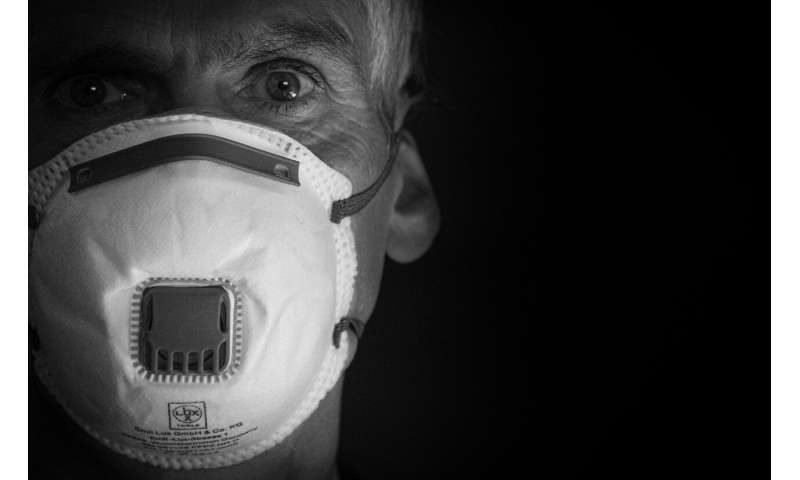
New research from Public Health England (PHE) presented at this week’s ESCMID Conference on Coronavirus Disease (ECCVID) shows up to half of UK key workers from a cohort of just under 3,000 individuals recruited (including police, fire and healthcare workers) who had self-reported symptoms of COVID-19 did not test positive for antibodies to the disease. This suggests that their symptoms were due to other conditions. The study was presented by Ranya Mulchandani, PHE, Birmingham, UK in collaboration with PHE colleagues and academic partners across the UK.
Screening for SARS-CoV-2 antibodies is under way in some key worker groups; however, how this adds to self-reported COVID-19 illness is unclear. In this study, the team investigated the association between self-reported belief of COVID-19 illness and seropositivity.
The authors carried out a study of three key worker groups which took place at six acute NHS hospitals and two Police and Fire & Rescue sites across England in June 2020. They recruited individuals from three streams: (A) Police and Fire (B) healthcare workers and (C) healthcare workers with previously positive PCR result for COVID-19 (this last group was used to assess the immunoassay sensitivities, namely the ability of the antibody tests to correctly identify those with SARS-CoV-2 antibodies or ‘true positive’ rate.
The team used a study-specific questionnaire to collect self-reported signs and symptoms of COVID-19 and compared this with serology results from two SARS-CoV2 immunoassays (Nucleoprotein—Roche Elecsys and Spike-protein—EUROIMMUN).
Between 01 and 26 June, 2847 individuals were recruited: 1147 from Stream A, 1546 from Stream B and 154 from Stream C. 943 of the 2847 participants (33%) reported belief they had had COVID-19, having experienced compatible symptoms; however, 466 (49%) of these were seronegative on both antibody assays, meaning it is very unlikely they had had COVID-19. The Roche Elecsys and EUROIMMUN assays had 96.6% and 93.3% sensitivity respectively.
The researchers found that symptomatic but seronegative individuals had significantly earlier dates of symptom onset than the symptomatic seropositive individuals, shorter illness duration and a much lower reporting frequency of anosmia (lost of sense of taste and smell).
Self-reported belief of COVID-19 was common among the frontline worker cohort. About half of these individuals were seronegative, despite a high sensitivity (accuracy) of serology in this cohort, at least in individuals with previous positive PCR results. These data suggest that self-reported symptoms substantially overestimate COVID-19 disease relative to serology, and that in the key worker cohort studied, many mistook non-COVID-19 respiratory disease, particularly during the early part of the COVID-19 outbreak, as COVID-19.
Source: Read Full Article
